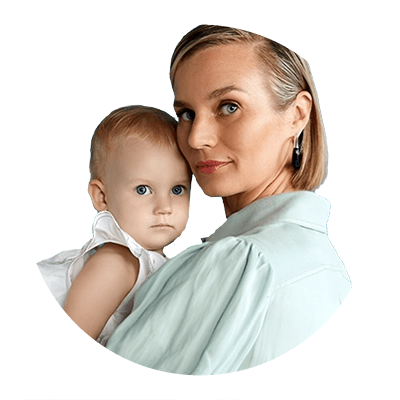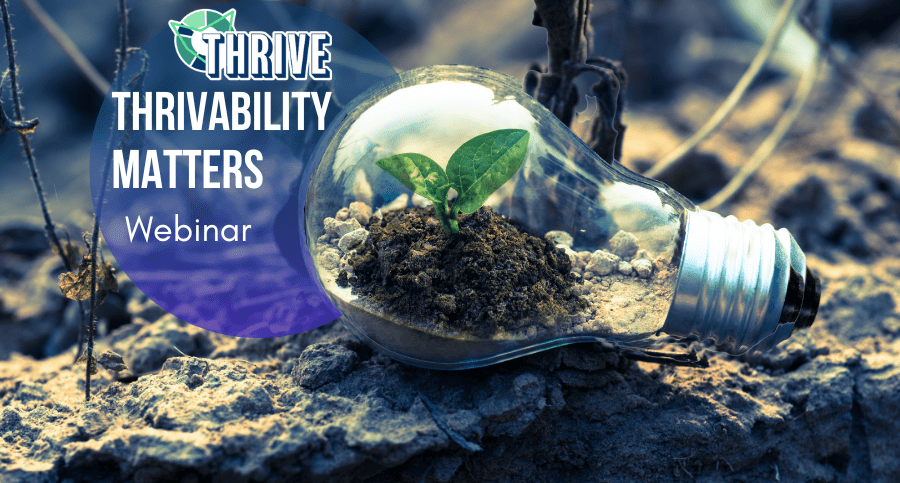The THRIVE project expresses its heartfelt appreciation to Erin Remblance and Jen Gearing for their insightful presentations at the January 2024 Thrivability Matters Webinar. We thought you were awesome and well worth listening to. Each subject was interesting and illuminating. The focus of this webinar centred around the United Nations Sustainable Development Goals (SDGs). The theme of January 2024 is on SDG4: Quality Education and SDG8: Decent Work and Economic Growth. Here are our webinar highlights!
About The January 2024 Speakers

Erin Remblance has dedicated her life towards educating people on climate change, de-growth, planetary boundaries, modern monetary theory, and more. She is a freelance journalist for Illuminem. Furthermore, she lives north of Sydney, Australia with her family, on the occupied ancestral country of the Gayemagal people.
Jen Gearing is a change and project management professional with over 20 years of experience. Through her company, Rejenerate, she helps businesses of all sizes implement sustainable practices. In fact, these practices align with the United Nations Sustainable Development Goal 8: Decent Work and Economic Growth. She is also a trained B Consultant and Facilitator. Furthermore, Jen holds a Master of Business (Sports Management), LEED Green Associate and is pursuing a Diploma in Sustainable Operations. Her expertise extends to project coordination with Boomerang Alliance in Australia, dedicated to reducing single-use plastic in food outlets. She is also an ecoBIZ coach, guiding businesses in minimising energy, water, and waste consumption.

Summary Of The January 2024 Webinar
As an organisation, the THRIVE Project endeavours to guide humanity towards a more sustainable future. We had the privilege of hosting these two speakers as guest presenters for our webinar.
Erin Remblance On “Economic Growth”
Growth
Erin Remblance spoke on growth and degrowth. During her presentation, she explained that economic and GDP growth are not sustainable. In fact, according to Erin, the Gross Domestic Product does not measure human well-being. As consumers, our material footprint correlates with the GDP. Furthermore, as a society, our well-being and the GDP are not correlated. In other words, having more stuff doesn’t make us happier or healthier. Indeed, having more stuff has forced our planet to breach 6 out of the 9 planetary boundaries.
GDP is unevenly distributed. This is because the profits of business go to the owners, not the labours. Owners always look at reducing costs to make more money. She argues that businesses and governments entertain the false notion that poverty will disappear through growth. Indeed, she clarified that poverty is not a population problem but a lifestyle and consumption problem. It is unrealistic to think society will meet 2030 targets in 6 years with tech that doesn’t exist. The human economy is a construct. The construct is fixable and changeable.
Degrowth
Erin shared her definitions on degrowth. First, is that it is a planned and democratic reduction in material and energy in overconsuming nations, while improving global well-being and justice. The focus here is on the overconsuming nations, those nations that breach Earth overshoot day every year. In other words, developed nations. Second, is that degrowth is a decolonisation of the imaginary and the implementation of other possible worlds. The decolonisation of the imaginary is about the belief that economic growth is good.
Erin says that degrowth is about reducing growth so that we can return to within our planetary boundaries. We don’t need more economic growth as it is sending us over an economic cliff. We can achieve degrowth by providing basic universal services to everyone. These are services such as health, education, food, and housing. These things do not need commodification. Governments and businesses could reduce the working week. Also, they can reduce and cut down what isn’t necessary. Moreover, society could look at sharing over owning. Growth is being used to not address inequality. In other words, it’s a bit like the Titanic, ignore the problem and keep partying. Addressing inequality is a component of degrowth.
You can see Erin’s Q&A responses by clicking here.
Jen Gearing On “A Rising Tide Floats All Boats”
Jen Gearing works with the B Corp community. She explained that either B Corp certified, aspiring, or businesses that choose to purchase from B Corps make up this community. In fact, Rejenerate is Jen Gearings aspiring B Corp business. Jen described that the current requirements for a business to become a B Corp are an assessment which they must score 80 points or above. Furthermore, a B Corp must have a purpose and stakeholder clause addressed in their governance. Finally, there are transparency requirement for all B Corps. B Corps then have the choice to focus on a particular SDG and work towards it.
During Jen’s presentation she shared the journeys of several businesses in the B Corp community. Indeed, she shared how one aspiring B Corp business focuses on SDG4, quality education, by sponsoring 2 students every year. Another aspiring B Corp company she spoke on supports refugees, people who can’t afford traditional school, those with interrupted learning journeys, and other people impacted by challenges and inequalities. This particular company offers various opportunities including coding classes. Finally, she spoke on how a Brisbane B Corp certified business uses a giving platform called B1G1. This platform allows a business to either donate money or tie its donations to a business activity.
You can see Jen’s Q&A responses by clicking here.
Moving Forward From January 2024
The Thrivability Matters Webinar for January 2024 showcased insights from Erin Remblance and Jen Gearing in achieving SDG 4 & 8 If you missed the presentations or the live Q&A session, you could view the recordings on our YouTube channel or download the PDFs from each of the speakers.
If you’re interested in joining us after the January 2024 Thrivability Matters Webinar, there are a variety of avenues you can take. One way of keeping up with us is via social media platforms, such as LinkedIn, X, Instagram, and Facebook. However, you could subscribe to our YouTube channel, listen to our podcasts, sign up to our newsletter, stay up to date with our blogs, attend our free webinars, or even join us as a volunteer to make an even bigger difference in this world.
Interested in Responsible Consumption and Production?
Want to be kept in the regenerative loop with THRIVE?
Got more questions?
Ask an expert!























